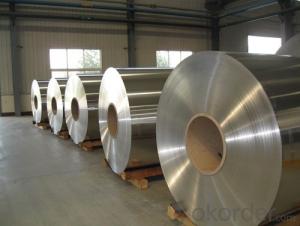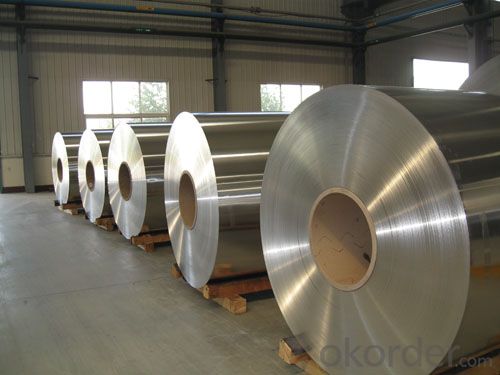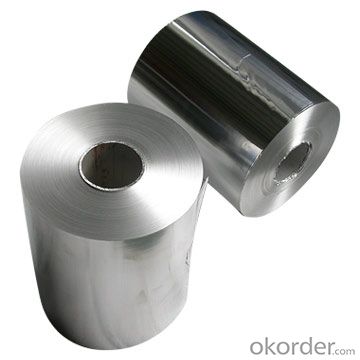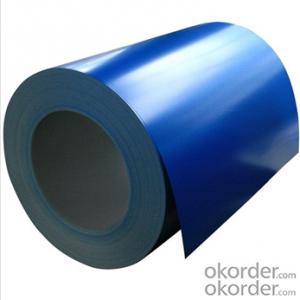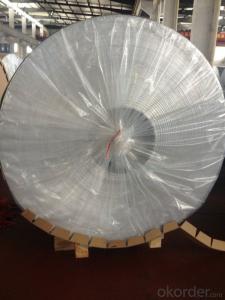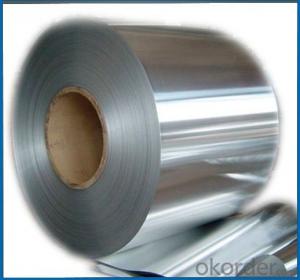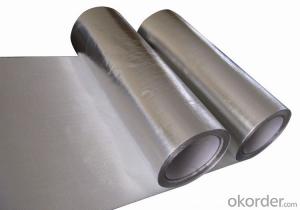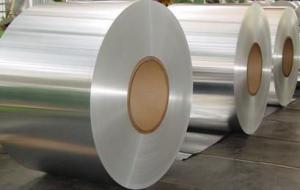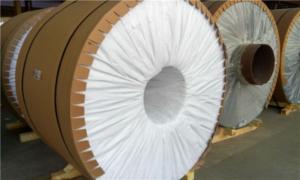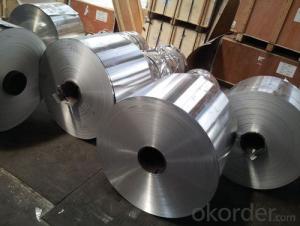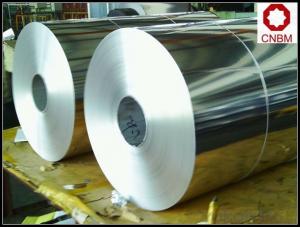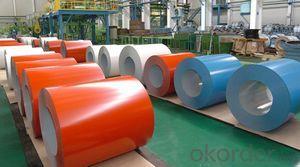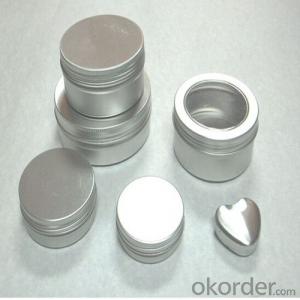Paul Frost 1100 5052 Mirror Cost Insulation Aluminum Coils
- Loading Port:
- Shanghai
- Payment Terms:
- TT OR LC
- Min Order Qty:
- 5 m.t.
- Supply Capability:
- 6000 m.t./month
OKorder Service Pledge
OKorder Financial Service
You Might Also Like
Specification
1100 5052 Mirror Cost Insulation Aluminum Roll
Applications:
Aluminum foil roll is widely used in construction,decoration,hardware,
electric appliances,machinery and other industrial and civil purposes,
such as electronic capacitor,composite cooker,rice cooker,refrigerator,
computer casting,telecommunication,equipment,lamp shade,air conditioner,
cosmetics cover and so on.
Or it can be made as customers’ requirement.
Specifications
color aluminum coil
1000 series 1100 10160 1200
surface could be: Brushed, drawing, embossed, printing
color: red,
color aluminum coil
.Alloy type: 1050/1060/1100/1350
2.Temper: H16, H18, H22, H24
3.Thickness range: 0.1mm-4mm
4.Width range: 25mm-1600mm
5.Surface:finish: bright & smooth surface, without flow lines, slight oiled to avoid white rusting.
6.Quality material:totally free from such defefects as roll marks, edge damager, camber, white rust, oil patches, holes, break lines,
color aluminum coil
Name |
color aluminum coil |
Alloy or not | yes |
Alloy | 1100H16/18, 3003H24,3003H26,3005H26,8011,3004,3105,5005,etc. |
Thickness | 0.1-4mm |
Width | ≤1600mm |
MOQ | 5T |
Coating finish | Brushed, drawing, embossed, printing |
Color | As to code RAL |
Surface | Embossed,Mill Finish,Coated,Brushed |
Gloss | 10-90%(EN ISO-2813:1994) |
Total coating thick | PVDF27 ~35micron |
Polyester18~27micron(EN ISO-2360:1995) | |
Coating hardness | 2H |
Adhesion | 5B (EN ISO-2409:1994) |
Impact resistance | No cracking and peeling (A.S.T.M D2794-1993) |
Flexibility (T-bend) | 0T- 2T |
MEK resistance | 100 |
Certification | ISO9001:2000, CE, SGS |
Coil's standard diameter | 1100mm |
Inner Diameter | 405mm/505mm |
Coil's standard weight | 2000kgs |
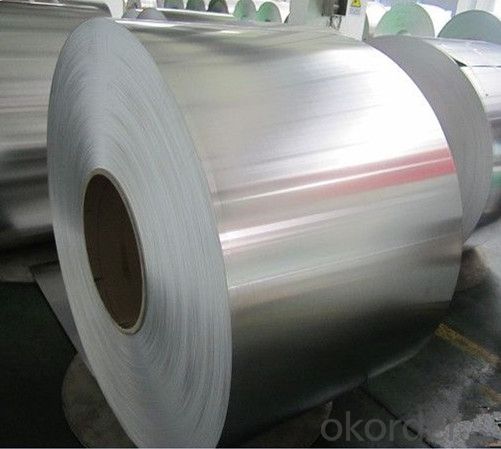
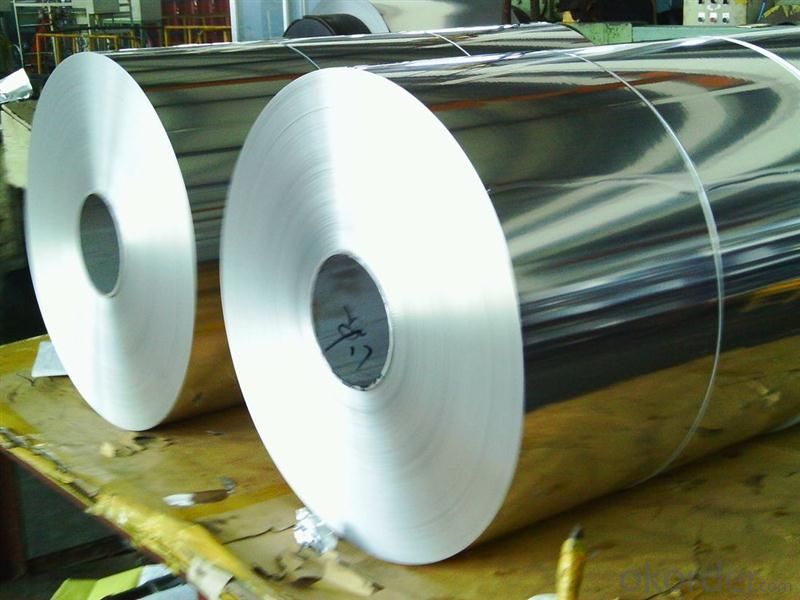
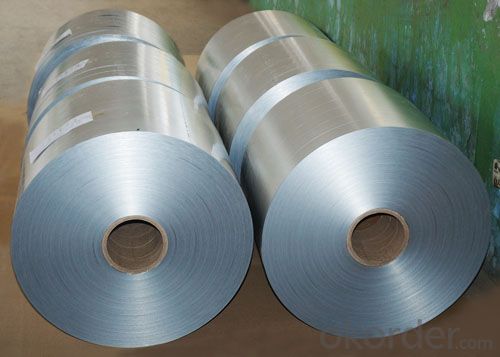
- Q: Are there any limitations to the maximum coil diameter of aluminum coils?
- There exist limitations on the maximum coil diameter of aluminum coils. Factors such as the type and thickness of the aluminum, the coiling equipment, and the intended application of the coil determine the maximum coil diameter. Thinner and more ductile aluminum alloys generally allow for larger coil diameters. However, maintaining the structural integrity of the coil and preventing deformation, wrinkling, or damage during handling and transportation becomes increasingly challenging as the coil diameter increases. Moreover, the coiling equipment may have its own restrictions on the maximum diameter it can handle. Hence, it is crucial to take these factors into consideration when determining the maximum coil diameter for aluminum coils.
- Q: Can aluminum coils be used for architectural applications?
- Yes, aluminum coils can be used for architectural applications. Aluminum is a versatile and lightweight material that offers excellent corrosion resistance, making it suitable for various architectural purposes. Aluminum coils can be used for exterior cladding, roofing, facades, and even interior applications like ceilings and wall panels. The coils can be easily formed, cut, and shaped, allowing for flexibility in design and creative architectural solutions. Additionally, aluminum coils can be coated with various finishes, such as paint or anodized coatings, to provide enhanced aesthetics and durability. Overall, aluminum coils are a popular choice in the architectural industry due to their versatility, durability, and aesthetic appeal.
- Q: Can aluminum coils be used in chemical processing plants?
- Yes, aluminum coils can be used in chemical processing plants. Aluminum is resistant to many chemicals, especially in non-acidic environments. It is lightweight, has good thermal conductivity, and can withstand high temperatures, making it suitable for various applications in chemical processing plants.
- Q: Is it possible to use a crowbar as a tool for opening an aluminum coil?
- <p>While a crowbar can be used to apply force to open various objects, it may not be the most suitable tool for opening an aluminum coil. Aluminum coils can be sharp and using a crowbar could lead to injury or damage to the coil. It's recommended to use gloves and a pair of pliers or a coil cutter specifically designed for handling aluminum coils to ensure safety and avoid damaging the material.</p>
- Q: This question seeks to understand the various types of aluminum coils that are commonly found in the market.
- <p>Aluminum coils available on the market today can be categorized based on their properties and applications. These include: 1. Plain Aluminum Coils: Used for general purposes like packaging and construction. 2. Embossed Aluminum Coils: Feature a textured surface, used in decorative applications. 3. Alloy Aluminum Coils: Made from a mixture of aluminum and other metals for enhanced strength or corrosion resistance. 4. Color Coated Aluminum Coils: Coated with paint or plastic for aesthetic or protective purposes. 5. Heat Treated Aluminum Coils: Processed to improve their mechanical properties. 6. Mirror Finish Aluminum Coils: Have a highly reflective, polished surface. 7. Pre-painted Aluminum Coils: Coated with a layer of paint before being used in construction or other applications. Each type serves specific industries and applications, with variations in thickness, width, and alloy composition.</p>
- Q: Can aluminum coils be used for seamless gutters?
- Yes, aluminum coils can be used for seamless gutters. Aluminum is a popular choice for seamless gutter installations due to its durability, lightweight nature, and resistance to corrosion. The coils can be easily shaped and formed to create a seamless gutter system that effectively directs rainwater away from the building.
- Q: How are aluminum coils tested for strength and durability?
- Aluminum coils are tested for strength and durability through various methods such as tension testing, hardness testing, and corrosion resistance testing. Tension testing involves subjecting the coils to gradually increasing force to determine their breaking point and tensile strength. Hardness testing measures the coil's resistance to indentation or scratching, providing insight into its durability. Additionally, corrosion resistance testing assesses the coil's ability to withstand environmental factors that may cause deterioration. These comprehensive tests ensure the quality and reliability of aluminum coils in various applications.
- Q: How are aluminum coils used in the production of aircraft components?
- Aluminum coils play a vital role in the manufacturing of aircraft components, offering a combination of strength, durability, and lightness that makes them ideal for this purpose. One primary application of aluminum coils in aircraft production involves fabricating sheet metal parts. Through techniques like rolling, stretching, and bending, these coils are transformed into flat sheets of aluminum, which are then cut and shaped to create wings, fuselage panels, and tail surfaces. The lightweight nature of aluminum makes it a preferred material for aircraft construction, as it reduces the overall weight of the aircraft and improves fuel efficiency and performance. Using aluminum coils allows manufacturers to easily produce thin and lightweight parts, contributing to the overall weight reduction of the aircraft. Additionally, aluminum coils are utilized in the production of structural components such as frames and beams. These coils are formed into extrusions, which are then cut and joined to create the structural elements of the aircraft. Aluminum's high strength-to-weight ratio makes it an excellent choice for these components, providing the necessary strength while keeping the aircraft's weight low. Apart from its structural applications, aluminum coils are also used in the production of various aircraft systems. For example, they are incorporated into the construction of heat exchangers, air conditioning units, and fuel tanks. Aluminum's excellent thermal conductivity allows for efficient heat transfer, which is essential for maintaining optimal operating conditions within the aircraft. Overall, aluminum coils are extensively utilized in the manufacture of aircraft components due to their lightweight nature, high strength, and excellent thermal properties. Their versatility and the ability to be processed into different shapes and sizes make them the preferred material for manufacturing critical aircraft parts, ensuring the safety, performance, and efficiency of modern aircraft.
- Q: Will the surface of the aluminum sheet touch the water?Aluminum rolls weighing 3.463 tons,.35mm thick, 900mm wide, very tight coil, is a mechanical binding. Water does not penetrate the surface of aluminium rolls
- Do you want to ask if the water has seeped into the crevice?If you get it soon, there should be no problem. No, you can just sun it and see if there's any water coming out of it
- Q: Are there any restrictions on the coil thickness of aluminum coils?
- Yes, there are typically restrictions on the coil thickness of aluminum coils. The specific restrictions may vary depending on the intended application and industry standards. Generally, the thickness of aluminum coils is limited by the capabilities of the manufacturing equipment and the desired final product. Thinner coils are often preferred for applications that require flexibility, such as in the manufacturing of foils or flexible packaging materials. On the other hand, thicker coils are commonly used in industries like construction or automotive, where strength and durability are important factors. Additionally, the thickness of aluminum coils may be restricted by the availability and cost of raw materials. It is important for manufacturers to adhere to these restrictions to ensure the quality and performance of the final product.
Send your message to us
Paul Frost 1100 5052 Mirror Cost Insulation Aluminum Coils
- Loading Port:
- Shanghai
- Payment Terms:
- TT OR LC
- Min Order Qty:
- 5 m.t.
- Supply Capability:
- 6000 m.t./month
OKorder Service Pledge
OKorder Financial Service
Similar products
Hot products
Hot Searches
Related keywords
